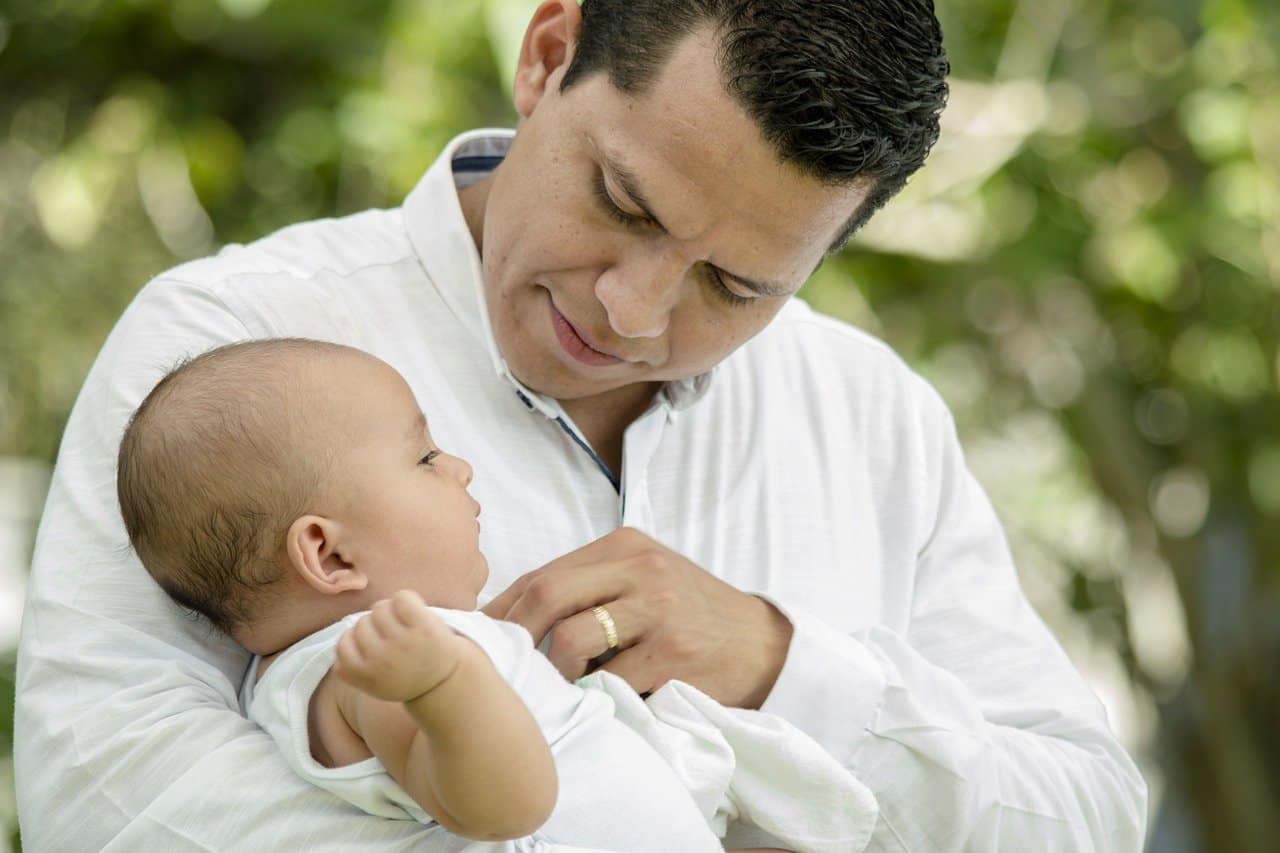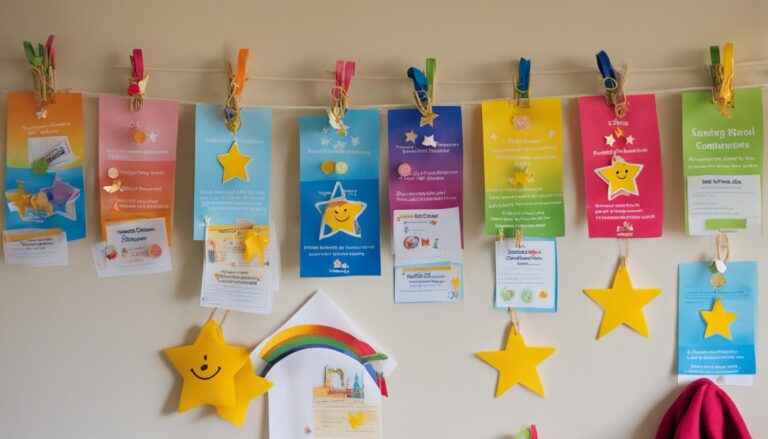What are the Qualities of a Nurturing Parent? #2 Is Most Difficult
So, what are the qualities of a nurturing parent? Before answering this, you need to understand what nurturing is and how important it is to parenting.
First, nurturing is very important in parenting because it can help your child become a confident and healthy individual. With that in mind, parents then need to understand how to nurture their children for better outcomes in future.
Here, you’ll learn more about the qualities of a nurturing parent. Thus, this post will not only answer your question but it will help you practice nurturing accordingly.
What is Nurturing?
As a parent, it’s obviously that you want the best for your child or children. Hence, you end up making more efforts to take care and protect them.
While that is acceptable and understandable, nurturing is a completely different experience. That’s because a nurturing parent should do more than just take care and protect their children.
Nurturing involves listening to your kid, understanding him/her, and being always there for them in general. According to research, children who grow up feeling secure in their homes turn out to be better individuals.
Therefore, parents should strive more to nurture their kids as opposed to only offering them the basics. So, what are qualities of a nurturing parent?
Read on to understand.
Qualities of a Nurturing Parent
As you have seen, nurturing your child at a tender age can have significant long-term benefits. For instance, many experts have realized that most happy and successful people almost share the same qualities.
Fortunately, you can nurture the same positive and productive qualities in your child using the right approach. Moving on, the following are some of the nurturing qualities that you need to implement as a parent to raise a better individual.
1. Responsibility
Responsibility is a quality that ensures you commit to something and follow through regardless of the field or department. When it comes to parenting, some parents only think that they are the only ones needed to be responsible throughout the entire experience.
Surprisingly, children can also learn responsibility at a very tender age with proper nurturing. At 1 year old, most babies already know how to make you react or notice them by using different ways.
If you notice this, then your child might be ready to start learning about responsibility. That’s because your child now understands the cause and effect mechanism, which is called the rudimentary understanding.
With rudimentary understanding, your child now knows that there are actions to his/her consequences. So, this is where nurturing comes in to help you teach your toddler more about responsibility.
For instance, children like throwing down their bottles to catch their parents’ attention. Your child knows that you have to pick up the bottle because you want him/her to continue taking the milk or water.
So, most children do this when they want to draw your attention. At this point, start nurturing them with some age-size responsibilities.
However, it doesn’t have to be something that big, no. You can start off lightly by just instructing your child to hand over the spoon to you or someone else.
And as they grow older, you can advance nurture them to be more responsible by:
- telling him/her to properly arrange her room
- instructing them to put dirty laundry in the laundry hamper
- asking them to help you with some house chores
However, don’t expect too much and be patient with them, another nurturing quality that we’ll also look at. For toddlers, you have to be extra patient because even picking more than one toy can exhaust them.
Lastly, ensure that you try your best to explain the essence of responsibility to your child. For instance, explain to them that stacking their books properly will make it easier to find one or two when in need.
Of course, this idea will seem hard at first especially for your child. However, it will eventually sink in and that’s why you also need to practice with your child.
Patience is very essential when nurturing your child and every parent needs it especially during the early years of their child. With that in mind, let’s move on to patience, another quality needed for nurturing children.
2. Patience
One thing you need to understand is that good things come to those who wait. According to many experts, kids who learn patience at an early age are the ones most likely to succeed in many things.
That’s because things take time, no matter what they regard. It might be minutes, hours, months, and even years for most things to change or workout.
When you nurture your child with patience, they grow up with feelings of accomplishment and independence. That’s because they would have understood at a young age that most things require time to ripen.
And in the end, waiting while behaving their best will usually turn out good most of the time, if not always. Additionally, children follow more of what we do than say.
So, watch how you react to frustrating situations, hard choices, and even rough traffic. Your child is always watching and your behavior can reflect more on theirs than you might think or know.
Additionally, toddlers don’t really say much but they do grasp what they can be able to hear and observe. So, ensure that you exhibit your impatience or frustrations in a way that won’t hurt their emotions.
Explain to them why you feel some type of way instead of lashing out without hesitance. Remember, you are your child’s first teacher and by far the most important one yet.
3. Trust
Trust is applicable in different areas and for different reasons. For your child to develop mentally appropriately, you need to emphasize trust when nurturing them.
Trust will help in building relationships, feeling confident in others, and believing in others, among many more benefits. So, failing to instill this characteristic in your child at an early age may lead them to fear more.
Without trust, most children have a hard time believing others, building solid relationships, and feeling confident. Imparting trust in your child starts at an early age – as early as the infant stage.
You might be wondering how but you might already have done it or currently doing it without knowing. As an infant, your child starts trusting you the moment both of you start bonding.
The time taken to bond with your child makes him/her feel secure and believe in you, herself, and the people around her. So, your child gains or learns trust from you when you respond appropriately to his/her basic needs.
Other than fulfilling your child’s basic needs, take a step further to acknowledge and support or praise his/her achievements. For you to build trust with and in your child, you first need to understand their personality.
That’s because all children are different and one may not like too much attention on their radar. For instance, some children may interpret getting too much attention from their parents as a sign of mistrust.
So, understanding your child is the first step of implementing trust as a nurturing quality.
4. Independence
Teaching your child self-resilience requires the parents to exhibit the same nurturing quality. Let’s face it, you won’t be with your child all the time especially when they start going to school.
At some point, your child will leave for college and they’ll have to depend on the knowledge they received at home and in school. So, the best way to form a good individual in your child is by teaching them to be independent.
When children learn to act independently, they’ll find an inner compass that will help to direct them in choosing the right paths for themselves. Moreover, teaching your child self-resilience will also play a part in how they analyze and judge situations.
For instance, many children tend to start crying when they can’t play with other children’s toys. This is understandable but you have to explain the reason why it’s impossible and how best to find an alternative interest.
This way, your child will start to understand that not everything must go his/her way. With such realization, your child will be in a better place to understand when he/she lacks in some areas as a grown-up.
Moreover, this practice will have taught them that not all has to be lost because you can’t have or accomplish one thing. Independence teaches your child or children that they can create something for themselves and find alternatives where they lack.
5. Empathy
Empathy is a nurturing quality that requires you to understand your child. This quality is a very important nurturing quality because it helps to develop your child’s social competence.
At an early age, maybe 1-4 years old, your child finds it hard to analyze situations from other people’s perspectives. Most kids can only do that when they are about 4-5 years and older.
So, your child may hit or provoke another child when triggered by something or just because they can. At this point, your toddler doesn’t know or even understand what affects his/her actions will bring.
That’s why you need to understand them first before lashing out at them as most parents usually do in such situations. Fortunately, you have many proven options to utilize for your child to understand empathy.
First, explain to your child the effects or consequences that will arise from their actions. But don’t try telling your child to put herself in another person’s shoes.
At a young age, most children are egocentric so they only see the world revolving around them. Therefore, you need to make them understand that their actions have consequences in a way that they’ll understand.
Additionally, be vigilant on your child’s screen time and the type of content they are watching. That’s because some cartoons may show characters fighting each other and this perception might easily influence your child’s behavior.
Lastly, parents also need to show their children that they understand their pain, anger, or frustration. This is actually the best way to teach empathy to your child.
When your child exhibits or reacts angrily, don’t assume that they are doing wrong. Find out the real reason behind their anger, frustration, or discomfort.
By doing this, your child will start to understand how they should act when someone else is in trouble. Assist your child accordingly and they will most likely do the same when they are in a position to help.
Type of Childhood Experiences
If unaware, there are two types of childhood experiences. They include:
- Positive Childhood Experiences – Here, children grow up with strong characters, proper nurturing qualities, and develop a sense of worth for themselves. Most children who grow up with positive childhood experience end up succeeding in different ways in their later lives.
- Negative Childhood Experiences – Negative childhood experiences are things that any child wouldn’t ever wish to experience. With negative experiences come child abuse, victimization, exploitation, and neglect. According to research, many children who grow up experiencing more negativity in their childhood have a hide time coping in future.
These children most likely find themselves in drug abuse, wrong life decisions, and fall into all sorts of mental health to say the list. While this isn’t mostly their fault, negative childhood experience may mess up the entire life of a child at an early age.
So, this is where nurturing comes into play you it helps you develop positive childhood experiences for your child. Ensure that you understand and implement the qualities explained above for better results.
Conclusion
As you have seen, it takes a lot to raise a child into an individual. Fortunately, it’s all doable as explained above.
Children are very sensitive and you need to approach them in the same way, with sensitivity. What you exhibit to them will most likely reflect on their character and behavior.
So, make sure that you are nurturing your child with what you may want them to present as individuals. To do that, you need to make use of the five explained qualities of a nurturing parent to succeed in your quest.
Always strive to deliver positive experiences to your child because this will reflect on their personality, as they grow older.










